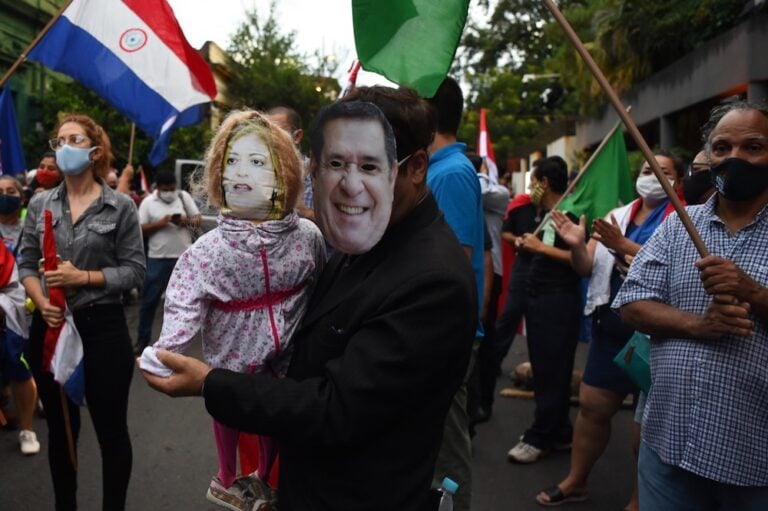(SPP/IFEX) – On 30 April 2008 the SPP welcomed the court ruling absolving journalists Enrique Dávalos and Carlos Cáceres of defamation, calumny and injury to the former auditors of the Comptroller General’s Office (Contraloría General de la República), alleged to have been caused by their articles investigating irregularities in the fulfillment of highway contracts. Aldo […]
(SPP/IFEX) – On 30 April 2008 the SPP welcomed the court ruling absolving journalists Enrique Dávalos and Carlos Cáceres of defamation, calumny and injury to the former auditors of the Comptroller General’s Office (Contraloría General de la República), alleged to have been caused by their articles investigating irregularities in the fulfillment of highway contracts.
Aldo Zuccolillo, the director of “ABC Color”, was also absolved by Judge Alba González. As well, she ordered the Prosecutor General’s Office (Fiscalía) to investigate the irregularities reported concerning the so-called “Chinese paving” contracts (which allegedly resulted in expensive alterations to a public works project that were economically favourable to a politician). Former auditors Atilio Perazzo and Juan Antonio Cristaldo were plaintiffs in the court actions.
Coincidentally, this ruling was issued only days before World Press Freedom Day, celebrated on 3 May. The SPP executive believes that this ruling should set a precedent in the defence of press freedom, since journalists covering the issue of corruption in public administration, even when the cases are commented on by various media outlets, are often faced with personal lawsuits.
Ángel Cardozo’s case is an example of this. Cardozo, who works for Cable TV Plus station, located in the Mariano Roque Alonso district, was sued for defamation and calumny by superintendent Walberto Zárate, after reporting on irregularities in the district administration.
Press freedom has also recently been undermined by administrative measures against community radio stations. In 2007, the National Telecommunications System (CONATEL) confiscated the equipment of various community-based radio stations belonging to social organisations in Coronel Oviedo and Minga Guazú.
Another radio station that was silenced was Tekopora, based in Presidente Franco, a district in the Alto Paraná department.
SPP will continue to firmly defend press freedom and freedom of expression, and to accompany the struggles of communities for more democratic access to and control of the electromagnetic spectrum, so that their voices, not only those of the powerful, are heard.


